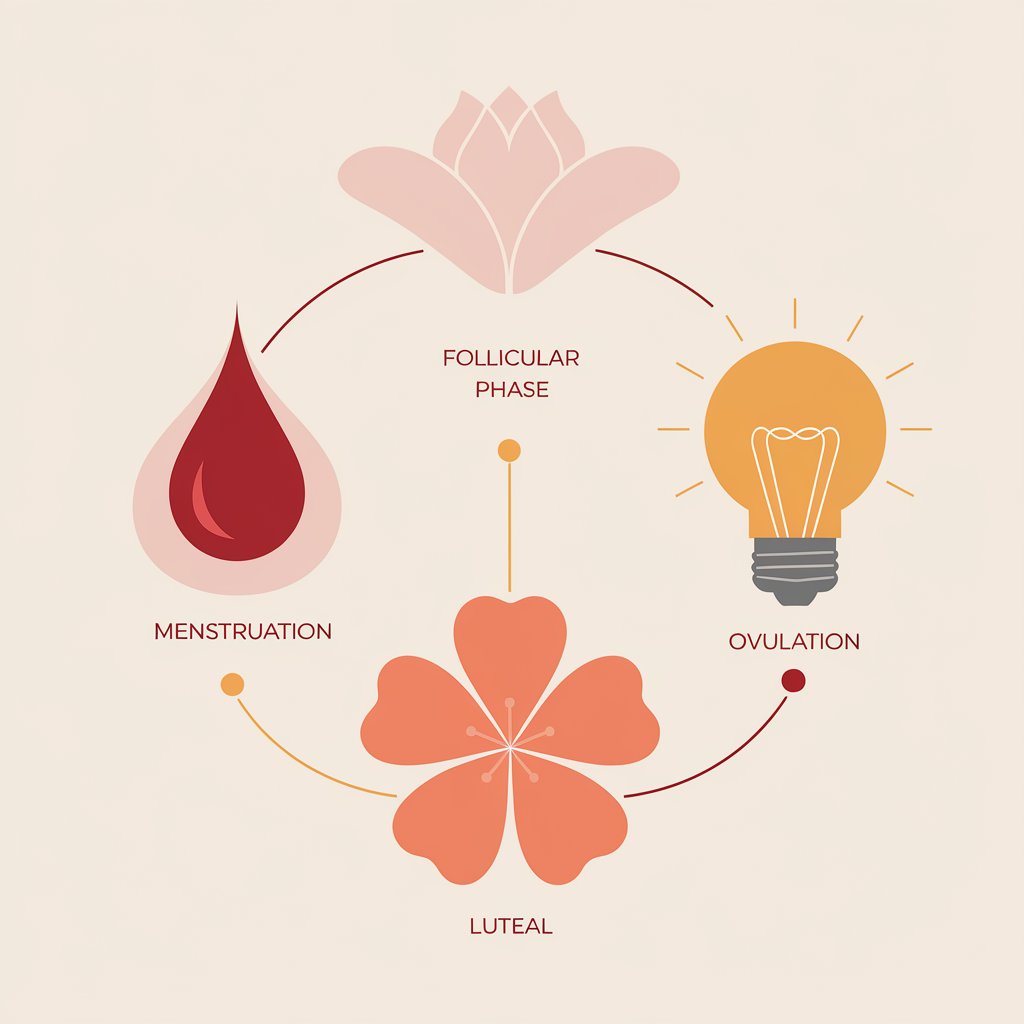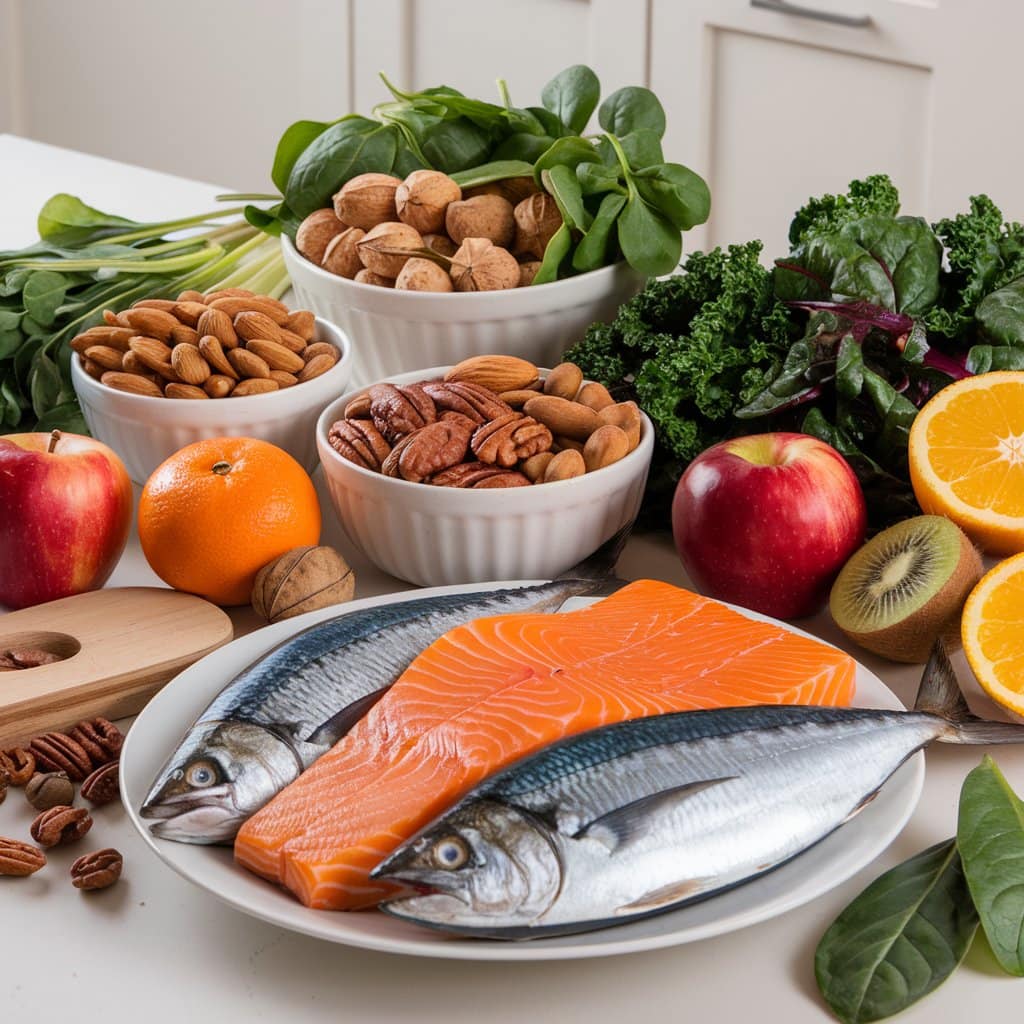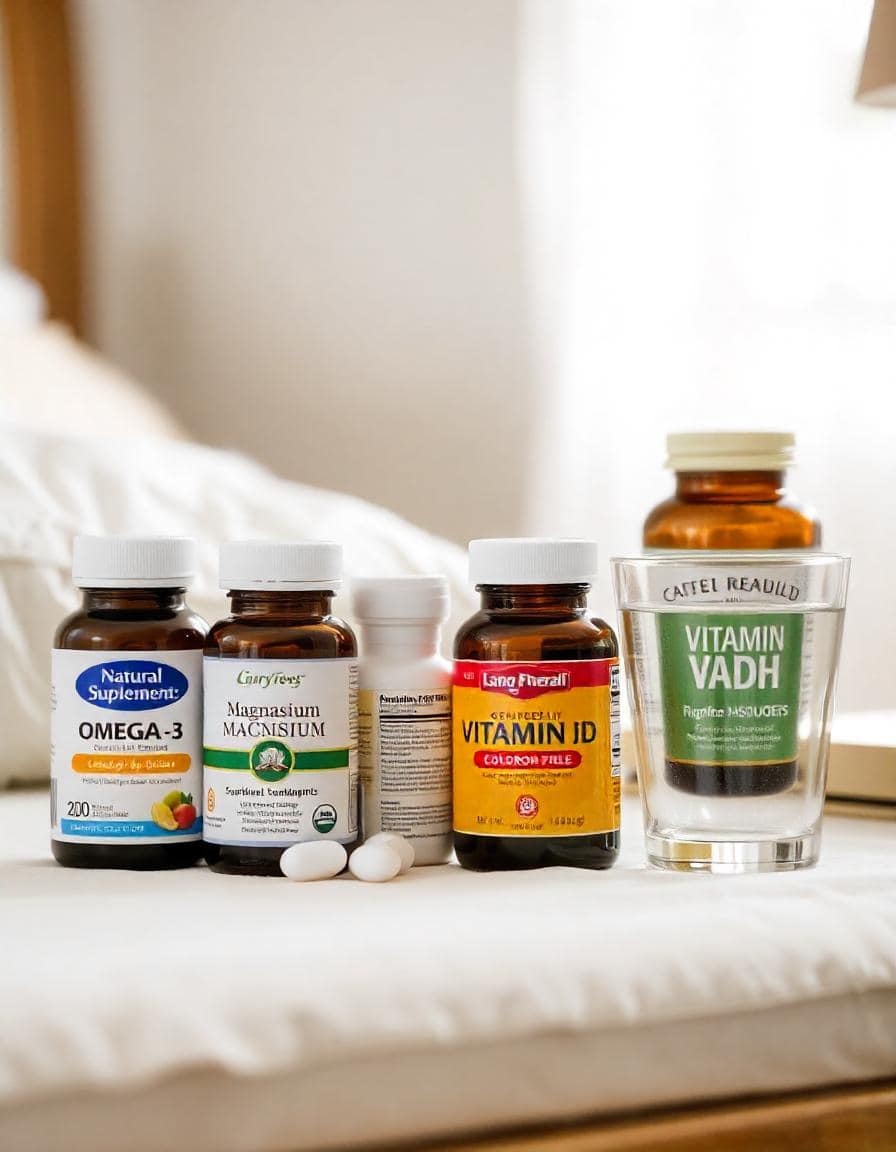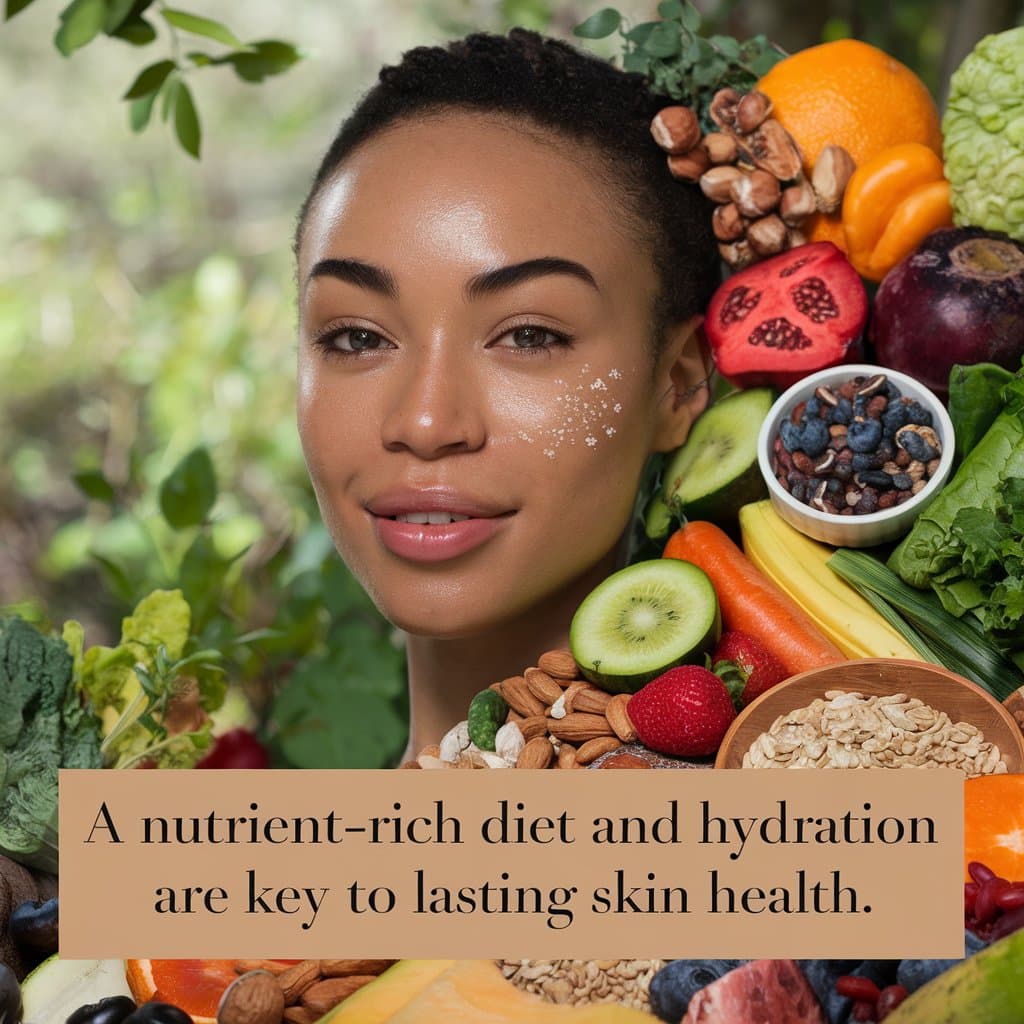

Join the Newsletter
Dive into quick, nutritious recipes, expert health tips, local food finds, and the latest in nutrition. Let’s explore healthier living together!
How to Use Nutrition to Regulate Your Menstrual Cycle

Affiliate Disclosure
Before reading this post, please be aware that some links in this article are affiliate links. This means that if you click on one of these links and make a purchase, we may earn a commission at no additional cost to you. We only promote products and services that we believe will be beneficial to our readers.
For more information, please read our full Affiliate Disclosure.
Introduction
Imagine waking up to a body that feels in sync with its natural rhythms, where your menstrual cycle is no longer a source of distress but a reflection of harmony within. For many women, the unpredictability and discomfort of their menstrual cycles are a monthly challenge, one that often leaves them feeling disconnected from their bodies. But what if the key to unlocking a smoother, more predictable cycle lies within the choices you make at every meal?

The relationship between nutrition and menstrual health is profound and often overlooked. The foods you eat can either nurture the delicate hormonal balance that governs your cycle or disrupt it. By understanding this powerful connection, you can take meaningful steps toward a more regular and less troublesome menstrual cycle.
The Importance of a Balanced Menstrual Cycle
A consistent menstrual cycle is more than just a sign that your reproductive system is functioning well—it’s a window into your overall health. A regular cycle suggests that your body’s hormones are in harmony, while irregularities may indicate underlying issues.Regardless of whether you aim to alleviate premenstrual symptoms, get ready for conception, or enhance your overall comfort, leveraging nutrition to balance your menstrual cycle can greatly boost your quality of life.
The Menstrual Cycle Explained

Breakdown of Menstrual Cycle Phases
The menstrual cycle consists of four primary stages: menstruation, the follicular phase, ovulation, and the luteal phase. Each of these stages involves specific hormonal changes that prepare the body for the possibility of pregnancy. By familiarizing yourself with these phases, you can better understand how different foods and nutrients affect your body at each stage.
Hormonal Shifts and Their Effects
Hormones such as estrogen and progesterone are essential regulators of the menstrual cycle. When these hormones are balanced, your cycle tends to be regular and predictable. However, disruptions in hormonal levels can lead to various menstrual issues. Nutrition plays a crucial role in supporting hormonal balance, which is why it’s essential to consider your diet when addressing menstrual health.
Challenges with Menstrual Health

Irregular Periods
Experiencing irregular periods can be both physically and emotionally taxing. Often, these irregularities are a sign of hormonal imbalances, which can be influenced by factors like stress, weight changes, and diet.
Excessive Menstrual Flow
For some women, heavy menstrual bleeding is a challenging condition that affects daily life. Poor nutrition, particularly deficiencies in specific nutrients, can make this issue worse.
Discomfort and Pain During Periods
Painful periods, or dysmenorrhea, are often linked to inflammation and hormonal imbalances. By focusing on a diet rich in anti-inflammatory foods, you can help alleviate some of the pain and discomfort associated with menstruation.
Nutrition’s Role in Hormone Regulation

Key Nutrients for Hormonal Stability
Certain nutrients are vital for maintaining hormonal balance. Omega-3 fatty acids, for example, have anti-inflammatory properties that can reduce menstrual pain, while magnesium helps relax muscles and alleviate premenstrual syndrome (PMS) symptoms.
Consequences of a Poor Diet on Menstrual Health
A diet high in processed foods, sugar, and unhealthy fats can disrupt hormone production and lead to irregular menstrual cycles, heavy bleeding, and severe PMS symptoms. On the other hand, a diet rich in whole, nutrient-dense foods supports your body’s natural hormonal processes, promoting a more regular and comfortable cycle.
Vital Nutrients for Menstrual Wellness

Omega-3 Fatty Acids
Omega-3 fatty acids are known for their anti-inflammatory effects, which can help ease menstrual discomfort and reduce cramps. These healthy fats are abundant in fatty fish such as salmon, as well as in chia seeds and walnuts.
Iron
Iron is crucial for restoring the blood volume that is diminished during menstruation. Women who experience heavy periods are particularly at risk of iron deficiency, which can lead to fatigue and other health issues. Including iron-rich foods like red meat, lentils, and spinach in your diet can help maintain healthy iron levels.
Magnesium
Magnesium is a mineral that helps relax muscles and reduce the intensity of menstrual cramps. It also plays a role in easing PMS symptoms such as mood swings and irritability. Foods like leafy greens, nuts, and seeds are excellent sources of magnesium.
Vitamin D
Vitamin D is important for regulating the menstrual cycle and may help reduce the risk of PMS. While sunlight is the best natural source of vitamin D, you can also obtain it from foods like fortified dairy products and fatty fish.
Vitamin B6
Vitamin B6 is crucial for the production of neurotransmitters like serotonin, which regulate mood. This makes it particularly beneficial for managing PMS symptoms such as depression and irritability. Good sources of vitamin B6 include bananas, chickpeas, and poultry.
Foods to Support Menstrual Health

Dark Leafy Greens
Dark leafy greens like kale, spinach, and collard greens are packed with iron, magnesium, and calcium, all of which are essential for menstrual health. These nutrients help maintain hormonal balance and reduce the severity of menstrual symptoms.
Omega-3 Rich Fish
Fish such as salmon, mackerel, and sardines are rich in omega-3 fatty acids, which help reduce inflammation and menstrual pain. Including these in your diet can significantly improve how you feel during your period.
Nuts and Seeds
Nuts and seeds provide healthy fats, protein, and magnesium, all of which support hormonal health and provide the energy needed to navigate your menstrual cycle with greater ease.
Whole Grains
Whole grains like quinoa, brown rice, and oats are rich in fiber, which helps regulate blood sugar levels and maintain a balanced hormonal environment. They also supply essential vitamins and minerals that support overall menstrual health.
Fresh Fruits and Vegetables
A diet rich in a variety of fresh fruits and vegetables ensures that you receive a broad spectrum of nutrients that support menstrual health. These foods are high in antioxidants, vitamins, and minerals that help reduce inflammation and promote overall well-being.
Foods to Limit or Avoid

Processed Foods
Processed foods are often loaded with unhealthy fats, sugar, and sodium, all of which can disrupt hormonal balance and exacerbate menstrual symptoms. Avoiding these foods can help you maintain a more regular cycle and reduce PMS symptoms.
Sugary Treats
Though cravings for sweets are common during PMS, sugary treats can lead to spikes and crashes in blood sugar levels, contributing to mood swings and energy dips. Opting for healthier alternatives can help you maintain a stable mood and energy level.
Caffeine
Caffeine can increase anxiety and interfere with sleep, which can worsen PMS symptoms. Reducing your caffeine intake, particularly in the days leading up to your period, can help you feel more balanced and calm.
Alcoholic Beverages
Alcohol can disrupt hormone production and worsen menstrual symptoms such as bloating and mood swings. Limiting your alcohol intake, especially during your period, can lead to a more comfortable menstrual experience.
Lifestyle Adjustments for Better Menstrual Health

Hydration
Staying hydrated is essential for your overall health, and it’s especially important during your menstrual cycle. Dehydration can worsen cramps and fatigue, so make sure you’re drinking enough water throughout the day.
Consistent Physical Activity
Regular physical activity can help regulate your menstrual cycle by reducing stress and balancing hormones. Even moderate exercise, such as walking or yoga, can make a significant difference in how you feel during your period.
Managing Stress
Stress significantly upsets hormonal equilibrium and can result in irregular menstrual cycles. Practicing stress management techniques like meditation, deep breathing, or journaling can help keep your cycle regular and reduce PMS symptoms.
When to Consider Supplements

Deciding If Supplements Are Necessary
While a balanced diet should be your primary approach to menstrual health, there are times when supplements may be necessary to address specific symptoms or nutrient deficiencies. Supplements can provide targeted support when dietary adjustments alone aren’t enough.
Common Supplements for Menstrual Balance
Popular supplements for menstrual health include omega-3s, magnesium, and vitamin D. These can be especially helpful if your diet lacks these crucial nutrients. However, it’s important to consult with a healthcare professional before starting any supplement regimen.
Success Stories from Real Women

Real-life experiences can be incredibly motivating when making dietary changes. Take Sarah, a 28-year-old woman who struggled with irregular periods for years. After making a conscious effort to include more leafy greens, fatty fish, and whole grains in her diet, she noticed a significant improvement in her cycle’s regularity and her overall well-being.
Emily, another success story, found that cutting back on processed foods and increasing her intake of omega-3s drastically reduced her menstrual pain and made her periods more manageable. These stories highlight the powerful impact that nutrition can have on menstrual health.
Conclusion

Taking control of your menstrual health through nutrition is not just about reducing discomfort—it’s about empowering yourself to live in harmony with your body’s natural rhythms. By making thoughtful choices about what you eat, you can support your body’s hormonal balance, reduce menstrual symptoms, and enjoy a more predictable, comfortable cycle. Your journey to better menstrual health is uniquely yours, so listen to your body and find the nutritional path that works best for you.
FAQs
Can diet alone fix my menstrual irregularities?
While diet is a crucial factor in regulating your menstrual cycle, it’s not the only one. Exercise, stress management, and other lifestyle factors also play significant roles. However, positive dietary changes can have a powerful impact on your menstrual health.
How soon can I expect to see results from dietary changes?
It varies from person to person, but generally, it can take a few weeks to several months to notice changes in your menstrual cycle after improving your diet. Consistency is key, so give your body time to adjust.
Are there specific foods for different stages of my cycle?
Yes, certain foods can be more beneficial during different phases of your menstrual cycle. For instance, during the follicular phase, focus on protein and healthy fats, while during the luteal phase, foods rich in magnesium can help alleviate PMS symptoms.
What if my cycle remains irregular despite dietary improvements?
If you’re still experiencing irregularities after making dietary changes, it’s important to consult with a healthcare professional. There could be underlying issues that need to be addressed by a healthcare professional.
Can supplements replace the need for a healthy diet?
While supplements can be helpful, they should not take the place of a well-rounded diet.. Whole foods provide a range of nutrients that work together to support your health, something that supplements alone cannot replicate.

Welcome to Merge Blog!
Dive into quick, nutritious recipes, expert health tips, local food finds, and the latest in nutrition. Let’s explore healthier living together!

I’m Divya Bharathi, the person behind MergeBlog. I’m a passionate food enthusiast sharing simple, nutritious recipes and tips for a balanced lifestyle. Join me on this delicious journey!
Divya Bharathi
SUBSCRIBE & FOLLOW
MUST-READ ARTICLES
Join the Newsletter
Dive into quick, nutritious recipes, expert health tips, local food finds, and the latest in nutrition. Let’s explore healthier living together!




